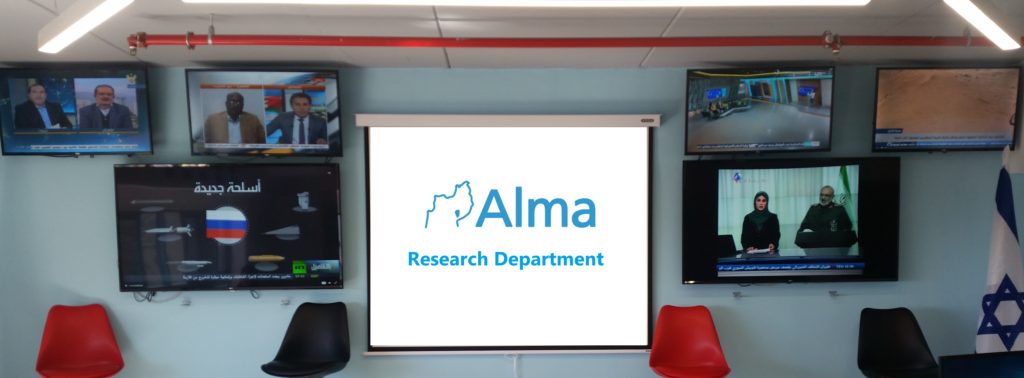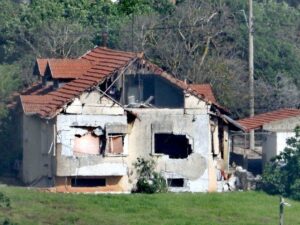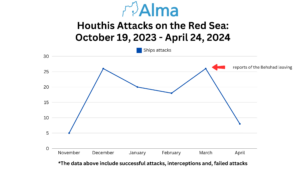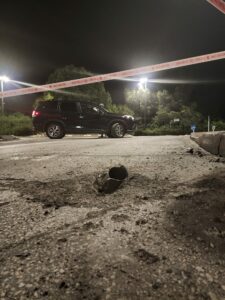[vc_row][vc_column][vc_column_text]
This week, Israel observed Holocaust Remembrance Day on the 70th anniversary of Israel’s independence. Israelis well remember the phrase, “Never Again,” but looking across the border, they now wonder whether this phrase is still valid. More than 600 thousand people have been killed in the Syrian War since it started in 2011. Half of the Syrian population (about 11 million people) have become displaced, and half of those have become displaced outside of Syria.
[/vc_column_text][vc_column_text]
Many of those who have been killed in Syria have been civilians, including women and children. And although most of the weapons used in the attacks by the Syrian regime have been conventional, their methods certainly haven’t been. The regime and its allies have targeted hospitals, schools, towns, and villages in Syria in order to crush the Syrian opposition, who has allied itself with radical Sunni groups as their struggle has persisted and intensified as the years have gone by.
[/vc_column_text][vc_column_text]
Understanding this context, there should be, at the very least, a line not to be crossed – the use of unconventional weapons in warfare. The use of chemical weapons cannot become an accepted part of warfare. The phrase, “Never Again,” should not be just another slogan; it should be a policy that the free world maintains and enforces on any perpetrator immediately so that dictatorial regime would realize this line is one they simply cannot cross.
[/vc_column_text][vc_column_text]
On the night of April 7th, 2018, the Syrian regime targeted the town of Douma with a chemical attack. The gas used was believed to be chlorine, killing over 40 citizens according to reports. According to photographic reports, many of the casualties were children. A few days after the attack, Jaish Al Islam, who controlled Douma, surrendered and agreed to evacuate the town.
[/vc_column_text][vc_column_text]
Russia had previously offered the opposition groups routes to evacuate Eastern Ghouta under their supervision to Idlib and Daraa provinces. Russia and the regime began their brutal operation there at the end of February 2018. The brutality of the attacks led civilians to request the evacuation of rebel forces, most of whom initially refused the deal. The regime had also provided pathways for civilians to evacuate Eastern Ghouta, which left the opposition forces quite deserted. Living was unbearable for civilians and they preferred the routes unto the regime’s control rather than die in a hopeless battle. Most groups eventually evacuated and their territories fell at the hands of the regime, but Jaish Al Islam (one of the largest rebel groups in Eastern Ghouta and a brigade of the Free Syrian Army), who controlled Douma, refused to evacuate. It was a few days after these events that the regime responded with the chemical attack on the town.
[/vc_column_text][vc_column_text]
Why should Americans, French, and Brits care about a few dozen who were killed in Douma after 7 years of deadly war in Syria? Why should the US risk escalations, which could further lead to war with Russia for Syrian Muslims on the other side of the world?
[/vc_column_text][vc_column_text]
The answer is much more complex than just Douma, it is even more complex than the Syrian case itself.
The Syrian regime is part of a Shiite radical axis, led by Iran. Assad cannot maintain control over Syria without the Shiite proxies of Iran. Therefore, what we have is an alliance among dictatorial and radical regimes. This includes Iran, with its advanced military capabilities – including more than 120 thousand missiles in the hands of Hezbollah in Lebanon, as well as midrange and long-range missiles developed by Iran. Iran also has nuclear capabilities which could be developed for military use with the expiration of the JCPOA. Therefore, a firm line must be drawn for these forces.
[/vc_column_text][vc_column_text]
This message is not only intended for the Shiite Axis, but also applies to Russia and North Korea. This recent attack is an opportunity to send a clear message – that the free world will not tolerate usage of chemical weapons.
[/vc_column_text][vc_column_text]
The next question relates to the past US involvement in the Middle East: Will this be another Iraq? And if so, then what will be the point of getting involved?
[/vc_column_text][vc_column_text]
What happened in Iraq has already happened in Syria on even greater levels, and this is without a large American intervention. Moreover, unlike the invasion of Iraq, the goal of Friday’s attack was not to overthrow Assad, but to hit its chemical weapons capabilities.
[/vc_column_text][vc_column_text]
Is it enough? As of this moment, we cannot estimate the damages that were caused to the locations targeted. Yet, if this attack is backed up by a consistent policy that includes diplomatic and military efforts, the message will be effectively received, and should deter future attacks. Sporadic attacks so far, along with earlier intentions by the US to withdraw from Syria, might make this attack meaningless and even harmful.
[/vc_column_text][vc_column_text]
Can this incident lead to escalations between the US and Russia?
[/vc_column_text][vc_column_text]
Is it enough? As of this moment, we cannot estimate the damages that were caused to the locations targeted. Yet, if this attack is backed up by a consistent policy that includes diplomatic and military efforts, the message will be effectively received, and should deter future attacks. Sporadic attacks so far, along with earlier intentions by the US to withdraw from Syria, might make this attack meaningless and even harmful.
[/vc_column_text][vc_column_text]
Israel faces a similar question every day: How can we create effective deterrence without causing escalation? There are no decisions or choices that are risk free. Choosing an effective deterrence strategy against an aggressor such as Iran (who is in position of power at the moment), is a dangerous business. It is too early to assess what the Russian response will be and where it will lead us.
[/vc_column_text][vc_column_text]
Winston Churchill said to Neville Chamberlain at the outset of WWII, “Britain and France had to choose between war and dishonor. They chose dishonor. They will have war.”
I am glad that this time the Western World did not choose dishonor.
[/vc_column_text][vc_column_text]
As an Israeli, this attack has a greater significance for me beyond the usage of chemical weapons. The night before the attack on Syria, two significant events took place:
- First, Nasrallah responded to the alleged Israeli attack on the T-4 airport last week. Nasrallah stated that, “Israel had made a historic mistake, which will have long term implications. Israel placed itself in a direct war against Iran. Nothing will be the same, this is a historical turn of events”.
- Second, Israel released that the Iranian drone that penetrated Israel two months ago was in fact armed and was on its way to attack a target in Israel. It can be assessed that Nasrallah’s aggressive speech implies the intention to send future drones into Israel. The T-4 airport attack resulted in the death of 7 senior officers of the Iranian Revolutionary Guard which brought Nasrallah’s threats, composed by Iran.
[/vc_column_text][vc_column_text]
Israel as it seems, is facing a clash with Iran. During the latest escalations between Israel and Iran, Israel stood alone as the main front of western democracy against Iran and the Axis of Resistance. Moreover, it was convenient for the Axis to call Israel the main front of the West and use that as a tool against Israel. However, the recent American action shows that Israel is not alone, and we hope this policy of assertive action will provide Israel with allies against the Axis of Resistance and its aims to extend influence in Syria and threaten Israel and the entire region.
[/vc_column_text][vc_column_text]
The next challenge will be the expected escalations in the Syrian Golan and Daraa. The civilians of the Syrian south are concerned that they will be targeted next with chemical weapons. Can Israel stay on the sidelines while chemical attacks on civilians are happening right across the border? This is why the firm line against the use of chemical weapons must be drawn. The Shiite axis must be prevented from acting however it pleases in Syria and imposing a threat to the region.
[/vc_column_text][/vc_column][/vc_row]






